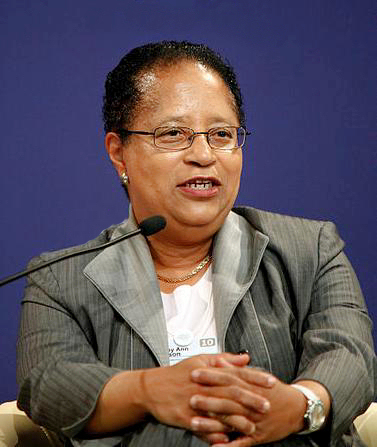March is Women’s History Month
March is a big month for recognising the past contributions of women throughout history.
While March 8 is celebrated around the world as International Women’s Day, the month of March kick-starts a month-long celebration: Women’s History Month. Women’s History Month was first celebrated in Australia in 2000 and was initiated by Helen Leonard, convenor of the National Women’s Media Centre, working with the Women’s Electoral Lobby.
To acknowledge this month long celebration, let’s take a look at just a handful of the historical and modern-day women pioneers that have helped build the world’s largest economy.
Recognising the female pioneers
Women’s History Month first started as a collection of week-long events around International Women’s Day, but that was formally extended into Women’s History Month in 1988 following a petition by the United States’ National Women’s History Project. Eagerly adopted by schools across the US, Women’s History Month is widely recognised as a time to recognise women’s role in the country’s history. Women’s History Month is also about recognising the contributions made by First Nations people as well as the USA’s strong African-American heritage.
Eleanor Roosevelt (1884 – 1962)

By Unknown – This image is available from the United States Library of Congress‘s Prints and Photographs division under the digital ID cph.3c08091. This tag does not indicate the copyright status of the attached work. A normal copyright tag is still required. See Commons:Licensing for more information. , Public Domain, Link
As the longest serving First Lady of the USA, Eleanor Roosevelt is also known as the First Lady of the World – in recognition of her role as the US Delegate to the United Nations General Assembly and her lifelong work in human rights. Following the death of her husband in 1945, it was Roosevelt that campaigned strongly for the US to join the United Nations, where she also oversaw the drafting of the Universal Declaration of Human Rights.
Sister Mary Kenneth Keller (1913 – 1985)
The first American woman to earn a PhD in Computer Science, Sister Keller occupies most lists of famous females throughout US history and women in tech. Born in 1913, Keller earned her degree from the University of Wisconsin and made a huge impact during the 1950s working in the computer science centre at Dartmouth College – a male-only institution at the time, where she was part of the team that developed the BASIC programming language. Keller is acknowledged as one of the pioneering advocates of increasing the role of women in technology.
Shirley A. Jackson (born 1946)

By Shirley_Ann_Jackson_-_Annual_Meeting_of_the_New_Champions_Tianjin_2010.jpg: World Economic Forum (Qilai Shen) derivative work: Gobonobo (talk) – Shirley_Ann_Jackson_-_Annual_Meeting_of_the_New_Champions_Tianjin_2010.jpg, CC BY-SA 2.0, Link
Jackson’s is the first African-American woman to receive a PhD in Theoretical Solid State Physics. Named by President Obama as the co-chair of the President’s Intelligence Advisory Board in 2014, it is Jackson’s research that paved the way for the invention of solar cells, fibre optic technology and the first portable fax machine.
Dr. Cassandra Manuelito-Kerkvliet (born 1955)
Maneulito-Kerkvliet is the first American-Indian female president of a mainstream US University – Antioch University in Seattle, Washington. After earning her Bachelor’s and Master’s Degrees from the University of Wyoming, she served as president of Dine College, the Navajo tribal college system from 2000-2003 and then earned her Doctorate degree from the University of Oregon before being appointed President of Antioch University in 2007. Maneulito-Kerkvliet has a strong view on how to encourage leadership and engagement in mainstream American life – through education.
Oprah Winfrey (born 1954)

By https://www.flickr.com/photos/aphrodite-in-nyc – https://www.flickr.com/photos/aphrodite-in-nyc/15445694840, CC BY 2.0, Link
Oprah needs no introduction. Lauded as the most powerful woman in the USA, the world’s richest African-American, the greatest black philanthropist in American history and at the moment – Winfrey remains North American’s only multi-billionaire black person. Winfrey’s achievements are formidable. She was the first black female news anchor at Nashville’s WLAC-TV and went on to become the host and producer of the most popular talk show to ever air on TV, with a global audience. The series finale of the Oprah Winfrey Show aired on May 25, 2011, but Winfrey continues to work as a philanthropist, producer, publisher and broadcaster all over the world.
Feeling inspired to be the best at what you do too? If you need digital solutions such as web design, ecommerce expertise or digital marketing to bring your ideas to life, contact digital agency iFactory today. Join the conversations about Women’s History Month and International Women’s Day happening across all your favourite social media channels. Follow the hashtags #IWD, #Gettingtoequal and #BeBoldForChange to add your voice. We’ll be there. Check out our Pinterest board on Women in Technology.


